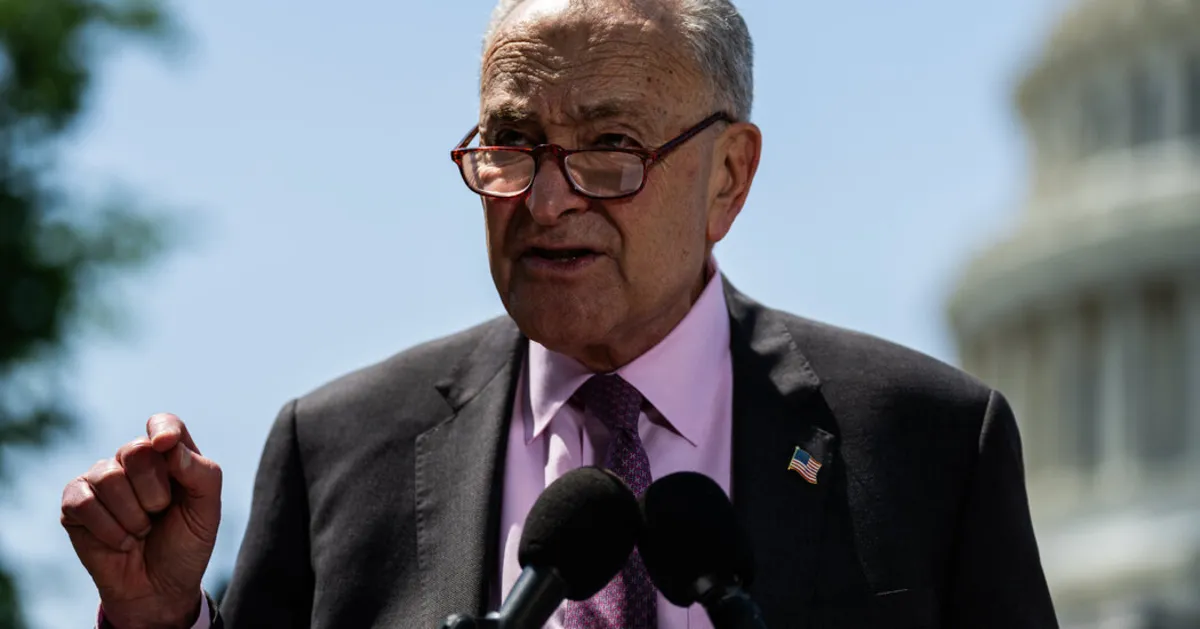
On Tuesday, Senator Chuck Schumer, the Democratic minority leader from New York, plans to implement a hold on all Justice Department political appointees currently awaiting Senate confirmation. This decision comes as a response to concerns regarding President Trump's controversial acceptance of a luxury airliner from Qatar, which is estimated to be worth up to $500 million and would potentially serve as a replacement for Air Force One.
In his prepared remarks for a Senate floor speech, Mr. Schumer is expected to express strong condemnation of President Trump's decision, labeling it as “not just naked corruption” but also a “grave national security threat.” He argues that the implications of such a substantial gift from a foreign entity raise serious ethical questions and could undermine the integrity of the presidency.
During his speech, Mr. Schumer will call for the Justice Department’s Foreign Agents Registration Act Unit to investigate any activities by Qatari agents in the United States that could benefit President Trump or his family’s business interests. Additionally, he aims to obtain crucial information regarding the airliner itself, including whether it includes necessary security enhancements or if such provisions are to be provided by the United States government.
Mr. Schumer also intends to scrutinize the implications of this deal on future presidential aircraft purchases already agreed upon with Boeing. He is expected to request that Attorney General Pam Bondi, who appears to have approved the acceptance of the gift, testify before Congress. Schumer seeks to clarify how receiving such a lavish item from a foreign government does not violate the Constitution's prohibition on presidential gifts, which typically requires Congressional approval or adherence to established ethics regulations.
“Until the American people learn the truth about this deal, I will do my part to block the galling and truly breathtaking politicization at the Department of Justice,” Mr. Schumer plans to assert. According to his office, there are currently three Justice Department nominees awaiting floor votes, but the hold could extend to dozens more, including nominees for critical positions such as U.S. attorney and U.S. marshal.
While placing a hold on a nominee does not prevent eventual confirmation—especially given the Republican majority in the Senate—it does require additional floor time to address the objections raised. This ongoing Democratic strategy of slow-walking Trump nominees was highlighted by Senator John Thune, the Republican majority leader, who noted persistent objections from Democrats regarding nearly every Trump nominee. Thune urged cooperation from Democrats to allow some of the president’s nominees to be considered in batches, indicating that Republicans are prepared to continue confirming administration nominees, even if it means conducting late-night or weekend votes to clear the backlog.